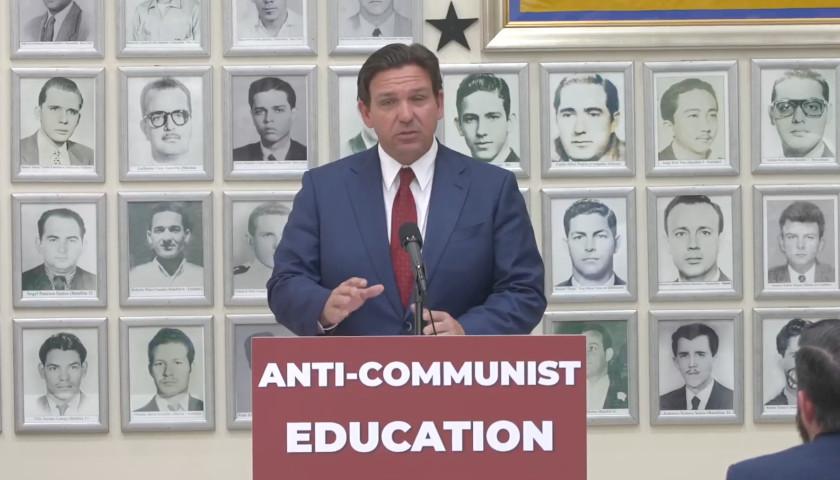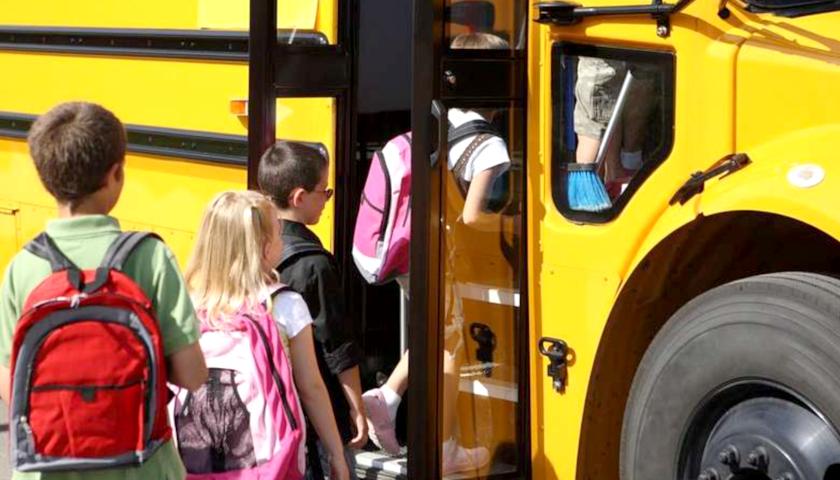by Jon Styf
Local taxpayers should not be worried about a large local tax increase in four years if a new public school funding formula is enacted, Tennessee Department of Education (DOE) Commissioner Penny Schwinn said.
An introductory overview of the proposed new formula, which would replace the current Basic Education Program (BEP) created in 1992, from the DOE showed “local contributions are set to be lower in FY24, FY25, and FY26 and begin to increase again in FY27, in an amount similar to prior years so that the new state investment does not overwhelm local requirements.”
During discussion in the House K-12 Subcommittee, however, Schwinn pushed back on the notion there would be a four-year cliff where local governments would see a heightened required local expense for public schools.
Each projection sent to school districts had a graph comparing local funding expectations for local governments. All of the district projections were in a binder Schwinn brought to Wednesday’s House Education Administration meeting, and she pointed to the data in her comments.
“I think the graph goes to show that this idea of a fiscal cliff is just inaccurate,” Schwinn said. “When you look at the BEP projected fiscal year 23 through fiscal year 30, you can see exactly what happens to the projections year over year. It is really important to dig into that within our local communities.”
The companion bills containing the new proposed school funding formula, called the Tennessee Investment in Student Achievement (TISA), are in sitting in legislative committee.
House Bill 2143 is scheduled to be discussed again Wednesday in the House Education Administration Committee after it was debated for three hours this week.
Senate Bill 2396 is scheduled to be discussed Tuesday in the Senate Finance, Ways and Means Committee.
The Metro Nashville Public Schools projections, sent March 25, show a $26.7 million increase in the local taxes required to fund schools in the first year, while those increases will be about $2 million a year after that, according to documents posted by Metro Nashville councilmember Erin Evans.
After fiscal year 2024, Metro Nashville is projected to have a lower required local contribution number under TISA than the BEP.
The projections were sent to local districts throughout the state but were not posted collectively or online. The communication also said a local contribution increase would occur regardless of whether the new formula passed.
Schwinn said a change to which formula TISA used to determine fiscal capacity of local governments to fund public schools made a significant change to the projections, which is why her department sent out the updated projections.
The original TISA bill planned to use calculations from the Center for Business and Economic Research at the University of Tennessee (CBER) to determine fiscal capacity. The BEP uses a calculation from the Tennessee Advisory Commission on Intergovernmental Relations (TACIR).
The TISA bill will be amended to use a combination of CBER and TACIR, however.
“Controlling for that local contribution was actually one of the hallmark components in developing this formula,” Schwinn said.
TISA communications have shown that 70% of overall funding for the base and weights of the student-based funding formula would come from the state, and 30% would come from local governments. The base funding is $6,860 for every Tennessee student, with more funding available based on weights to expend the $9 billion of state and local funds projected to be part of the new formula in the 2023-24 school year.
The added weights in funding include whether a student is economically disadvantaged, whether the student has unique learning needs related to disabilities and whether the student is in an incentivized career and technical education (CTE) program, which currently includes 42,000 students, which would receive an average weighted bonus of $5,000 in funding.
During the House K-12 Subcommittee, Schwinn noted Davidson, Shelby, Williamson, Knox and Hamilton counties would pay the highest percentage of local government funding based on fiscal capacity.
Executive Director of Tennessee County Services Association Executive David Connor said the local governments he serves are concerned about the long-term projections of costs. Connor’s comments came before the recent wave of projections sent from the DOE.
“That’s the concern we’re hearing from our locals,” Connor said. “The four-year, five-year, six-year, where are we? Have we reached the base to such a point where it starts and grows it really starts to hit the local tax base. That’s a concern they have, and I don’t know how to answer that.”
Connor said the groups he serves simply wants to get the formula right and ensure it funds more of the school staff positions than the BEP does, saying 10,000 to 11,000 school jobs statewide are not funded by the BEP for various reasons.
“That’s been a frustration,” Connor said. “It takes a huge amount of money to fund all of those positions, and that’s not getting completely resolved under this.”
– – –
Jon Styf is an award-winning editor and reporter who has worked in Illinois, Texas, Wisconsin, Florida and Michigan in local newsrooms over the past 20 years, working for Shaw Media, Hearst and several other companies. Styf contributes to The Center Square.
Photo “Penny Schwinn” by Tennessee Department of Education.









Schwinn’s comments are pure nonsense. This same fairy tale was used in other states. With all variables held constant, spending per child increases with standard inflation. Thus, ultimately, spending per child increases. However, what she is proposing is a shell game with the state’s contribution ultimately decreasing while local contribution increases. That local contribution is local tax dollars.
Does anyone actually believe Schwinn, the liberal leftist choice of Lee? This whole public school funding shenanigan dumped on us by Lee stinks to high heaven…. and beyond. The legislature should make these bills DOA.